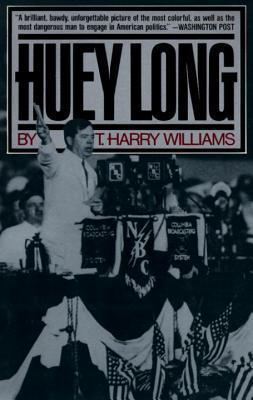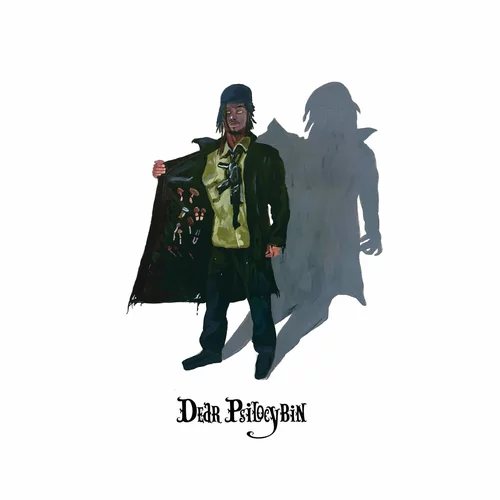Reading and listening, February 2025
Books

T. Harry Williams, Huey Long (1969). A long but digestible biography of the Kingfish. In some ways, Long comes off as a proto-Trump — populist, paranoid, disdainful of institutions, maddening to his political rivals. But Long was also more disciplined and less distractable. While he shared Trump’s style of garnering mass appeal through sloganeering and insults, Long was also attuned to policy implementation and the less visible levers of power in a way that’s hard to imagine from Trump.
Or at least the levers of power in Louisiana. The book dances around the idea that Long would have posed a real threat to FDR in 1936 if he hadn’t been assassinated. But his Senate career was hapless — when he wasn’t back home acting as the shadow governor, he was making enemies among senators in both parties with useless filibusters. It’s hard to imagine Long winning a national Democratic nomination in the era of smoke-filled rooms, and I’m not willing to bet that he’d have won on a third-party ticket if Teddy couldn’t.
My main issue with the book is that it ends with a thud: Long is assassinated, and that’s that. Williams doesn’t even try to spell out what happened to Long’s political organization, statewide or nationally, after his death. Maybe the assumption was that the 1969 readership would already have a broad sense of how things went from there? (Though wouldn’t that be akin to expecting the educated public of 2025 to have a clear sense of where things went after the failure of Jesse Jackson 1998 or Ross Perot 1992?)
Tricia Romano, The Freaks Came Out to Write (2024). A Christmas gift from my good friend Rob Carroll. It’s an oral history of the Village Voice from its inception through its death (and subsequent revival efforts). Oral history is a fitting way to cover a publication that was itself a cacophony of voices, particularly in its early years. Reading this book took me back to my college newspaper days, and was a major inspiration for me to start this blog — a chance to do some writing outside the academic publication confines for the first time in 17(!) years. The pastiche effect wore a bit thin by the end, though; I’d have liked more focused coverage of fewer topics.
James Kaplan, 3 Shades of Blue (2024). Another Christmas gift from another good friend, this time Brad Smith. This book is a sort of combined biography of Miles Davis, John Coltrane, and Bill Evans, structured with the recording of Kind of Blue as the climax. This was a slow read for me, not because it was poorly written (quite the opposite), but because I kept stopping to listen to the records along the path from bebop to hard bop to modal jazz. If nothing else, as a total idiot when it comes to music theory and styles of jazz, I appreciated learning that historical progression and context. The triography(?) format ended up being a bit of a bummer, though, as outside of the music the only biographical throughline connecting the three principals is addiction.
Albums

ZelooperZ & Real Bad Man, Dear Psilocybin (2025). My most-listened record this month. Laconic delivery of weird-to-incomprehensible verses over brilliant soupy funky-sad production. Dear Psilocybin has, at least this month, supplanted 3’n the Mornin’, Pt. 2 as the record I listen to driving home after a long night having to socialize.
James Brandon Lewis, Apple Cores (2025). I knew I would love this fusion record from the first two bars: three flams and a big fat kick drum, into a classic funk groove. This record is full of lyrical, high-intensity saxophone noodling, backed by a propulsive rhythm section. Speaking of the Village Voice, Stanley Crouch would have absolutely hated this shit, and that makes me love it all the more.
Julia Hülsmann, Under the Surface (2025). My wife described this as “night jazz”, which I found fitting even though I’d mostly listened to it in daytime. But the nighttime here is more of a biting winter than a relaxed summer. There’s a real nervous energy, ahem, under the surface.
Xiu Xiu, Plays the Music of Twin Peaks (2016). I’ve loved Twin Peaks ever since I binge-watched it in 2012 in between writing proofs for what turned out to be my job market paper. After David Lynch died, I spent hours scrolling through actors’ and musicians’ tributes to him on Instagram. I adore the music of the show, but I’ve never spent a lot of time listening to the official soundtrack on its own — it doesn’t sound right to me divorced from the visual context of Twin Peaks. Xiu Xiu’s post-rock-ish reinterpretation, on the other hand, was exactly what I needed this month. Only downside is that I couldn’t listen to the full record in the car with my kid, as X.X. end the closing track with an overdub of Laura Palmer reading from her XX-rated diary.
Fela Kuti, Gentleman (1973). Some possibly spurious parenting wisdom is that you have to try a food ten times to “learn to like” it, so you shouldn’t give up shoving broccoli in front of your kid until after the tenth try. In January I tried this philosophy with reggae, forcing myself to listen to Bob Marley until I hit ten times or started to like it. To my surprise, it worked. After that successful dive into one genre of kinda-political-kinda-romantic music of the Global South, I decided Afrobeat was next. Turns out 20-minute-long polyrhythmic dance numbers with political chants were precisely what I needed to make it through the not-so-tough Nashville winter.